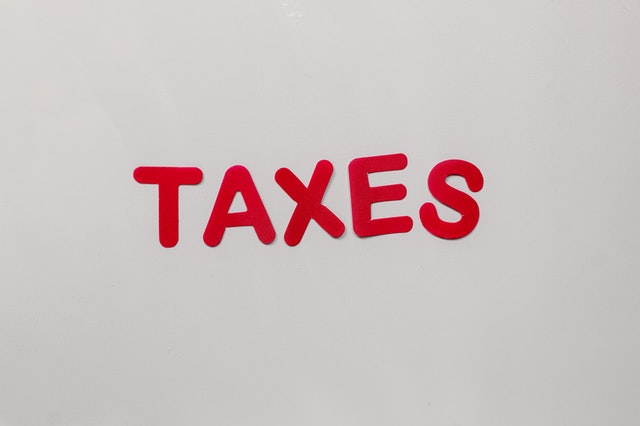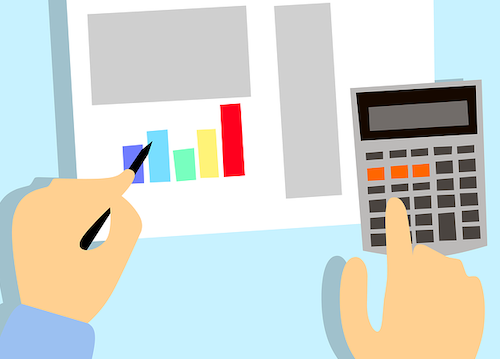For business owners and wealthy individuals alike, taxes play a major role in managing financial health. Whatever your financial situation, tax preparation is an important part of the picture. About a third of people choose to employ a tax advisor to help them file tax returns and assist in tax planning, and there’s no guessing why. Tax law is complex and lengthy. Unless you’ve spent years studying and have a wealth of experience dealing with taxes, you probably aren’t qualified to know how to best handle your tax situation.
Luckily, there are tax professionals who do have these qualifications who are ready to help. In fact, there are a lot of tax advisors out there, and finding the right one requires more than just a cursory google search or flip through the yellow pages. It’s important to look for a few key qualifications when vetting a potential tax advisor, and there are some informative questions you can ask.
But first, it’s also important to ask yourself some questions.
Why Do I Need a Tax Advisor?
There’s a reason people dedicate their entire professional lives to understanding tax code. It can be incredibly complex and it’s always changing. While many successful business leaders are highly-capable people who are used to being hands-on with all aspects of their business, there are areas in which enlisting specialized expertise is beneficial. This is certainly true when it comes to tax planning.
Hiring a tax advisor you can trust to help you or your business make the best tax decisions possible is extremely useful. It will give you confidence in your financial situation and will allow you to focus your time and efforts on the other aspects of life that need your attention.
What Do I Need from a Tax Advisor?
You need professional guidance and the best-possible tax plan, yes.
But your needs and goals are specific to you. For instance, if your tax needs don’t extend far beyond help filing a return come tax season, you may be fine with almost any tax advisor.
On the other hand, you should require a tax advisor with ample relevant experience if you:
- own a growing business
- are experiencing significant capital gains
- are renting real estate
- or are planning for retirement
Choosing a Tax Advisor, What to Look For
In finding someone to help you manage your taxes, you want to be sure you find someone who is fully qualified. The reason you’re hiring a tax advisor in the first place is that you’re taking your tax situation seriously. You should expect your tax advisor to do the same.
Here are some qualities any tax advisor worth their salt should have.
The Right Credentials
There are several professional credentials that good tax advisors can have. One of the more basic requirements is called a PTIN or Preparer Tax Identification Number. Any individual who is legally allowed to file taxes on another person’s behalf for compensation must have a PTIN.
Beyond having a PTIN, you can look for enrolled tax agents who are officially licensed by the internal revenue service. Enrolled agents must pass a specialized test and meet annual industry regulation requirements to remain certified. These are tax professionals whose area of expertise is centered squarely on taxes.
Another example is a CPA (Certified Public Accountant). What separates a CPA from an enrolled agent is a broader professional focus and state-specific licensing. CPAs must pass a test issued by the American Institute of CPAs, and can offer a wider range of financial services.
Relevant Experience
The right credentials are essential, but so is real-world experience. There are some things the best schooling in the world can’t teach.
A tax advisor who has years of experience will have invaluable knowledge that can’t be attained any other way. The best way to truly understand the range of tax issues that people really face and how to deal with them is to have dealt with them before.
How experienced is your potential tax advisor?
Did they only recently become certified, or do they have years of experience in the industry?
It’s also important to consider the type of experience your tax advisor has. If you own a small business or a larger one, does your tax advisor have experience helping clients in similar situations?
Ideally, you will find a tax advisor who has seen the kinds of hurdles you will run into and knows how to handle them best.
A Trusting Relationship
You’re taking your taxes seriously, but is your tax advisor?
A good sign you’ve found a tax advisor that is interested in serving you as best they can is that they will ask you questions. This is in order to establish a trusting relationship in which your advisor understands your situation as well as possible. They should show an interest in learning about your goals and values as well as your current financial situation.
Questions to Ask Your Financial Advisor
If you’ve found a financial advisor who looks like they might be a good fit on paper, it’s a good idea to have prepared some questions to ask. Here’s a list of questions that can help you be confident in your decision. If you aren’t sure how your advisor measures up in relation to any of the above criteria, this is your chance to learn more.
What’s your professional background?
This broad question will give the tax advisor an opportunity to share his or her qualifications. If you don’t already know, you’ll learn whether they are an enrolled agent or a CPA or if they at least have a PTIN.
You’ll also be able to hear about their level of experience. Where did they go to school? How long have they been in the business? Which types of clients do they have the most experience with? Make sure their experience is in line with your specific needs.
How will I be charged?
Tax advisors can receive compensation for their services in a variety of different ways. Understanding just how your advisor will charge you will make sure you aren’t blindsided when the bill comes. Some tax advisors charge by the hour, others by each form they fill out, and some even offer a refund of the total of your return.
How and when can I reach you?
Establishing a close and trusted relationship with your tax advisor will make your life a lot easier. To best facilitate this relationship, communication is key. Whether you prefer to communicate with your tax advisor via phone, e-mail, or in person, make sure this aligns with your advisor’s way of doing things.
In addition to being able to contact your advisor in the way that best suits you, you want to be able to contact them when you need to. If your advisor is only reachable and available for consulting during tax season and you need tax planning services throughout the year, you’ll need to find a better fit.
Do you offer any additional services?
Those with more complex financial situations can usually benefit from a whole range of financial services. Fortunately, there are tax professionals out there that have more than one area of expertise. If you want to get the most out of your financial services without involving too many different entities, look for an advisor or team that can offer multiple services.
What happens if I get audited?
The thought of getting audited can be daunting for both individuals and businesses. While it is a rare occurrence, even those with professional tax services can be subject to audits. It’s important to know where you will stand if it happens.
Is your tax advisor capable and willing to represent you to the IRS? Make sure you’re in good hands.
Get Help from the Experts
There is no shortage of reasons to hire a tax advisor. If your financial situation requires anything more than a simple tax return before tax day, you’re missing out without one. A tax advisor will free you from wondering if you’re making the best tax decisions and will give you more time to do what’s important to you.
Investing in a tax advisor is a great move, but make sure you find the right one. Take the time to look for experience and credentials, and don’t forget to ask questions. When it comes to managing your money, getting the best professional guidance is certainly worth it.
Get in touch with us here to find out how we can help your specific financial needs.


